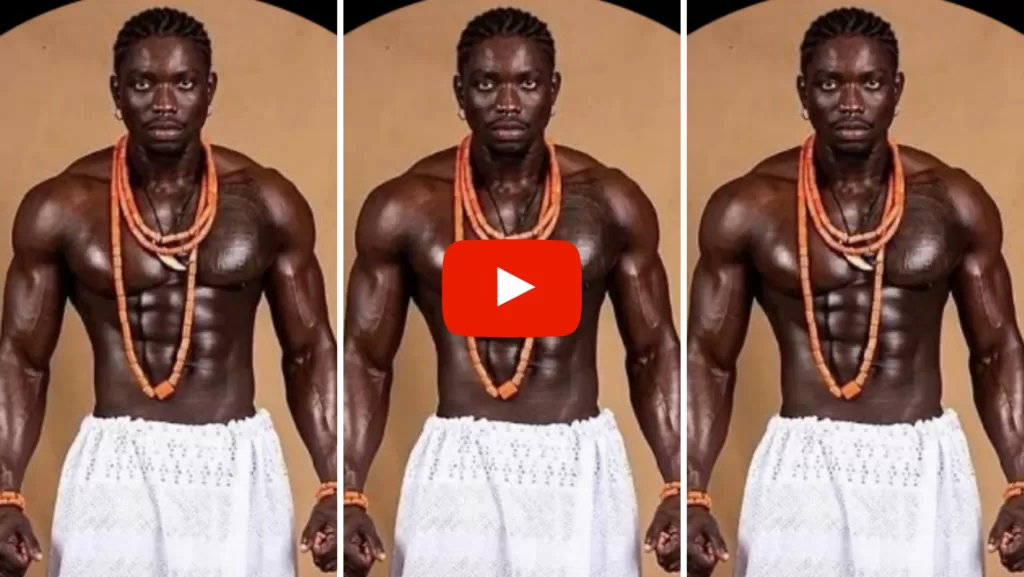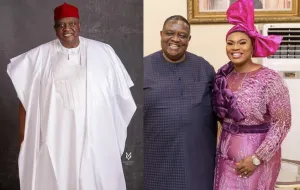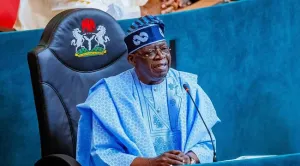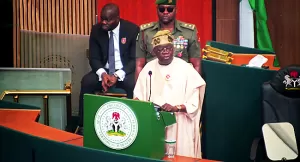VeryDarkMan’s Arrest by EFCC: Lawyer Reveals Reasons and Alleges Foul Play

Martins Vincent Otse, widely known as VeryDarkMan (VDM), a prominent Nigerian social media influencer and activist, was arrested by operatives of the Economic and Financial Crimes Commission (EFCC) on May 2, 2025, in a dramatic incident at a Guaranty Trust Bank (GTBank) branch in Area 3, Garki, Abuja. The arrest, which has sparked widespread controversy and debate, was detailed by VDM’s lawyer, Deji Adeyanju, who provided insight into the reasons behind the detention and accused both the EFCC and GTBank of misconduct.
The Arrest: A Coordinated Operation?
According to Adeyanju, VDM was apprehended while addressing a personal grievance at the GTBank branch. The influencer had publicly criticized the bank for alleged unauthorized transactions involving his mother’s account, specifically the fraudulent use of her National Identification Number (NIN) to approve a loan without her consent. This issue had been a focal point of VDM’s recent online activism, where he called out GTBank for what he described as systemic negligence and demanded accountability.
Adeyanju revealed that the arrest appeared to be a coordinated effort. He claimed that VDM and a friend, identified only as C Park, were locked inside the bank’s exit door for over five minutes, effectively trapping them until EFCC operatives arrived to effect the arrest. This, Adeyanju argued, suggested complicity on the part of GTBank, which he accused of facilitating the EFCC’s operation. The lawyer described the bank’s actions as “inhumane” and vowed to pursue legal action against GTBank for their role in the incident.
EFCC’s Alleged Charges and VDM’s Defiance
While the EFCC has not issued an official statement detailing the specific reasons for VDM’s arrest, Adeyanju disclosed that the agency presented an arrest warrant allegedly issued by a magistrate court, citing charges of cyberstalking. However, the lawyer noted that the EFCC refused to provide further details about the allegations, raising questions about the transparency of the process. Adeyanju described the arrest as “illegal” and an attempt to silence VDM’s vocal criticism of powerful institutions, including the EFCC itself.
In a show of defiance, VDM reportedly refused to leave his cell or engage with anyone, including his legal team, while in EFCC custody. This stance, according to Adeyanju, reflects VDM’s belief that the arrest was a targeted effort to intimidate him. The influencer’s refusal to cooperate has only heightened public interest in the case, with many of his supporters taking to social media to demand his release.
The Backstory: VDM’s Feud with the EFCC
The arrest comes against the backdrop of VDM’s ongoing public disputes with the EFCC. In recent months, the influencer has accused the anti-graft agency of attempting to frame him for various offenses. One notable instance involved VDM’s claim that the EFCC was plotting to implicate him in a case of illegally spraying money at a public event—an act prohibited under Nigerian law. These accusations, widely circulated on social media platforms like X, have positioned VDM as a polarizing figure, admired by some for his boldness and criticized by others for his confrontational style.
Posts on X and reports from Nigerian news outlets, such as Vanguard and Sahara Reporters, suggest that VDM’s persistent criticism of the EFCC may have made him a target. His outspokenness, particularly regarding allegations of corruption and inefficiency within the agency, appears to have escalated tensions, culminating in his arrest. While the EFCC has not publicly responded to these claims, the timing of the arrest—shortly after VDM’s public spat with GTBank—has fueled speculation of a broader agenda to silence the activist.
GTBank’s Role: Allegations of Complicity
Adeyanju’s allegations against GTBank have added another layer of complexity to the case. The lawyer argued that the bank’s decision to lock VDM inside the branch during the arrest was not only unethical but also a deliberate act to aid the EFCC. He pointed to VDM’s recent exposé on GTBank’s handling of his mother’s account as a possible motive for the bank’s cooperation with the authorities. The unauthorized loan linked to his mother’s NIN, which VDM had publicized, reportedly embarrassed the bank and prompted calls for an investigation into its practices.
In response, GTBank has remained silent, offering no public comment on the incident or Adeyanju’s accusations. However, the bank’s lack of transparency has only amplified public scrutiny, with many Nigerians questioning whether financial institutions are colluding with law enforcement to suppress dissent.
Public Reaction and the Road Ahead
The arrest of VeryDarkMan has ignited a firestorm of reactions on social media, particularly on X, where hashtags like #FreeVDM and #JusticeForVeryDarkMan have trended. Supporters argue that VDM is being unfairly targeted for his activism and his willingness to challenge powerful institutions. Critics, however, contend that his provocative approach may have invited legal consequences.
Deji Adeyanju has promised to fight the arrest through legal channels, describing it as an assault on free speech and an abuse of power. He has also called for an investigation into GTBank’s role and the EFCC’s conduct, urging Nigerians to stand against what he termed “oppressive tactics” by state agencies.
As of now, VDM remains in EFCC custody, and the agency has yet to provide clarity on the charges or the duration of his detention. The case has underscored the tense relationship between Nigeria’s law enforcement agencies and its growing community of online activists, raising critical questions about the balance between free expression and legal accountability.
Conclusion
The arrest of Martins Vincent Otse, alias VeryDarkMan, by the EFCC on May 2, 2025, has thrust the influencer into the center of a national controversy. His lawyer, Deji Adeyanju, has pointed to VDM’s criticism of GTBank and the EFCC as the primary reasons for his detention, alleging a coordinated effort to silence him. With charges of cyberstalking hanging over his head and accusations of foul play against both the bank and the EFCC, the case promises to be a litmus test for Nigeria’s commitment to free speech and justice. As the legal battle unfolds, Nigerians await answers, and VeryDarkMan’s fate remains a focal point of public discourse.






